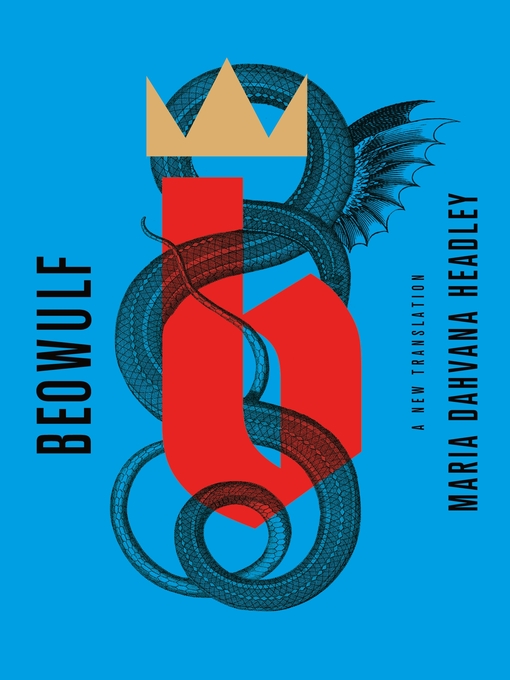Named one of the Best Poetry Books of 2021 by The Guardian
Longlisted for the 2021 National Translation Award in Poetry. Picked for Kirkus Reviews' Best Fiction in Translation of 2020. Named a Book of the Year by NPR, Vox, and The New Statesman. Picked for Loyalty Books' Holiday List.
A new, feminist translation of Beowulf by the author of the much-buzzed-about novel The Mere Wife
"Brash and belligerent, lunatic and invigorating, with passages of sublime poetry punctuated by obscenities and social-media shorthand." —Ruth Franklin, The New Yorker
"The author of the crazy-cool Beowulf-inspired novel The Mere Wife tackles the Old English epic poem with a fierce new feminist translation that radically recontextualizes the tale." —Barbara VanDenburgh, USA Today
Nearly twenty years after Seamus Heaney's translation of Beowulf—and fifty years after the translation that continues to torment high-school students around the world—there is a radical new verse translation of the epic poem by Maria Dahvana Headley, which brings to light elements that have never before been translated into English, recontextualizing the binary narrative of monsters and heroes into a tale in which the two categories often entwine, justice is rarely served, and dragons live among us.
A man seeks to prove himself as a hero. A monster seeks silence in his territory. A warrior seeks to avenge her murdered son. A dragon ends it all. The familiar elements of the epic poem are seen with a novelist's eye toward gender, genre, and history—Beowulf has always been a tale of entitlement and encroachment, powerful men seeking to become more powerful, and one woman seeking justice for her child, but this version brings new context to an old story. While crafting her contemporary adaptation of Beowulf, Headley unearthed significant shifts lost over centuries of translation.

-
Creators
-
Publisher
-
Awards
-
Release date
August 25, 2020 -
Formats
-
Kindle Book
-
OverDrive Read
- ISBN: 9780374720155
-
EPUB ebook
- ISBN: 9780374720155
- File size: 423 KB
-
-
Accessibility
-
Languages
- English
-
Reviews

Loading
Formats
- Kindle Book
- OverDrive Read
- EPUB ebook
subjects
Languages
- English
Why is availability limited?
×Availability can change throughout the month based on the library's budget. You can still place a hold on the title, and your hold will be automatically filled as soon as the title is available again.
The Kindle Book format for this title is not supported on:
×Read-along ebook
×The OverDrive Read format of this ebook has professional narration that plays while you read in your browser. Learn more here.